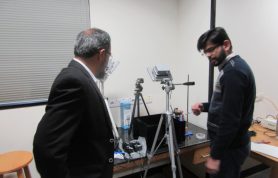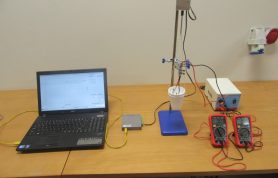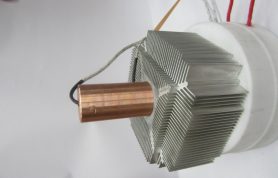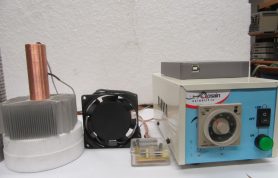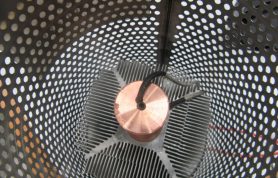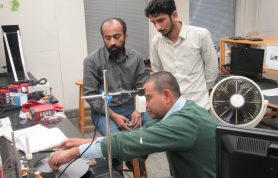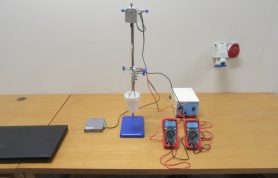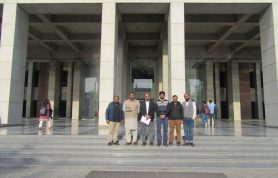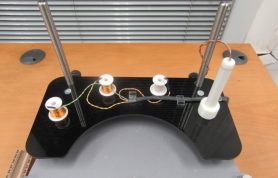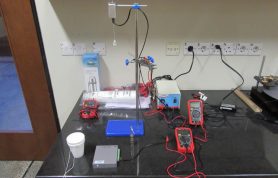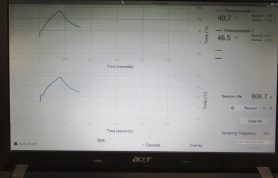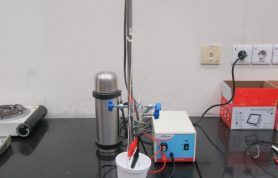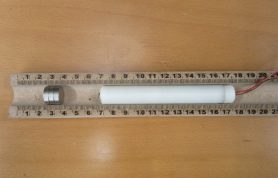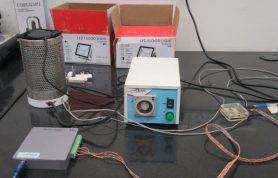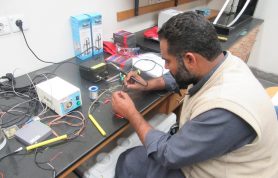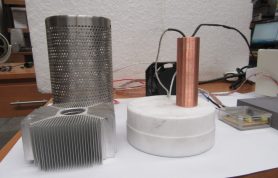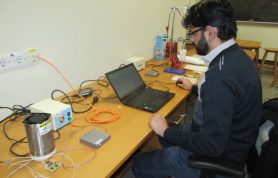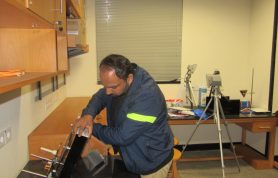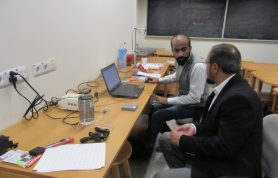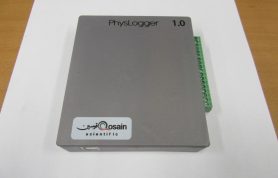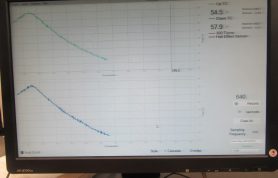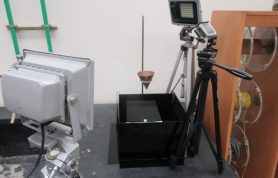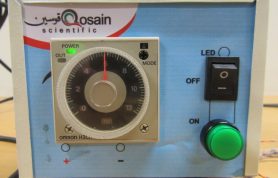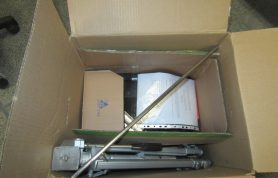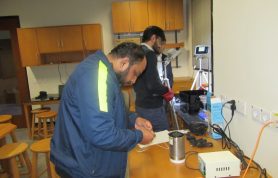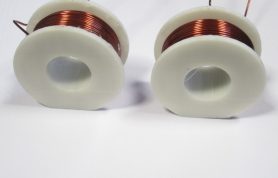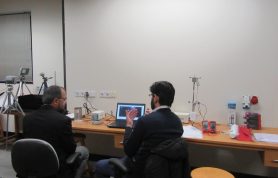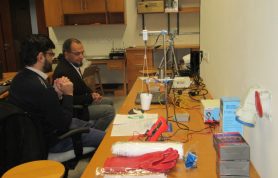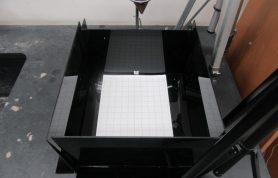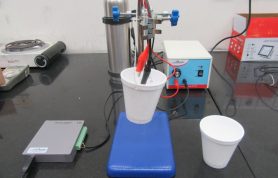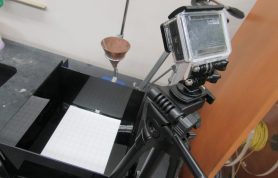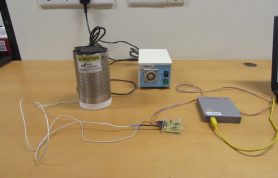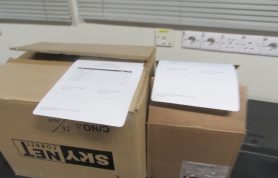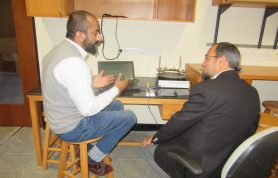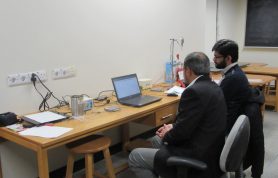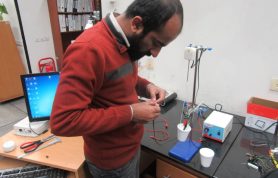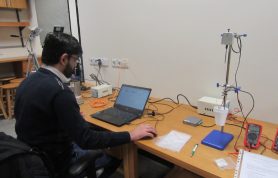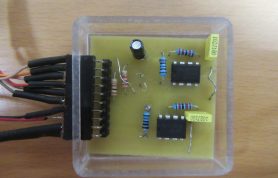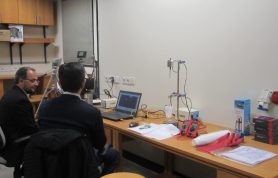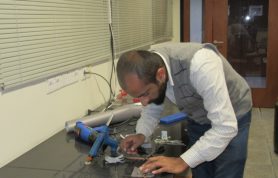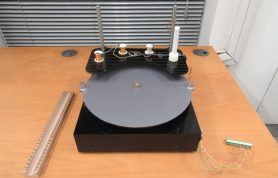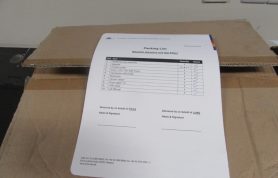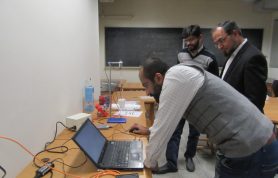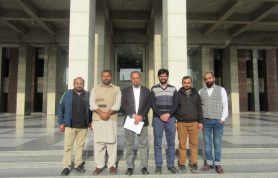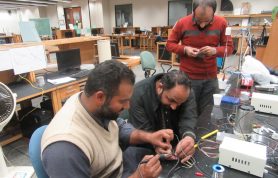Physlab completes the second phase of the technology transfer project to Pakistan Institute of Engineering and Applied Sciences (PIEAS), Islamabad. This supplements the first phase described here. In this phase, the institute has been supplied with the experimental setups to study magnetism, thermodynamics, and low-temperature cryogenics. Experiments that we built in this phase include:
- Comparing magnetic flux and derivatives of flux measurement using, respectively, solenoids and Hall sensors
- Leidenfrost phenomena in liquid oxygen and steering liquid oxygen drops with magnets
- How do objects heat and cool?
- Measuring liquid nitrogen’s latent heat of vaporization
The Physlab, working alongside Qosain, a spin-off, crafted homegrown low-cost devices including a robust, four-channel data acquisition device called the “Physlogger” accompanied by a desktop application with the same name. The device can simultaneously detect four analog signals including voltage measurements from thermocouples, homemade angle sensors and force measurement transducers. Details of these devices will be posted shortly.
The technology transfer and indigenous development of scientific equipment for lab-scale research and physics instruction reiterate our commitment to self-reliance and we hope to see the similar passion for instrument-building in institutions across Pakistan. Instruments can become windows to the mind. Over slavish attitude towards importing expensive equipment jeopardizes are ability to readily, expediently and experiment with physics. It hampers our students’ learning, kills their desire to build and create new experiments and stifles the learning process.
Here are some of the glimpses from the second phase of the project.
Project team:
PI from LUMS: Dr. Sabieh Anwar
PI from PIEAS: Dr. Afshan Irshad
Team from LUMS: Khadim Mehmood, Umar Hassan, Hafiz Rizwan, Ali Hassan
Team from Qosain Scientific: Dr. Muhammad Usman, Muhammad Shafique
